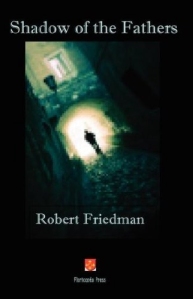This is quite belated, but I want to say something about the passing of Edgardo Vega Yunqué, who at his best was as inventive, piercing, poignant and hilarious as any writer going today. Ed, who was 72, was born in Ponce and, since the age of 13, lived in New York. He died, mostly likely of a blood clot, in the last days of August.
The obits written about him in the New York Times and on various online sites, point out his great talent and greater potential (if only, they say, he had had a strong editor), and his cantankerous personality. Seems he was always getting into disputes –political, literary and personal—with editors, artists, acquaintances, friends and foes. He wrote three important, captivating and fierce novels about Puerto Ricans in New York. The first two went by very long titles: No Matter How Much You Promise to Cook or Pay the Rent You Blew It Cause Bill Bailey Ain’t Never Coming Home Again, and The Lamentable Journey of Omaha Bigelow Into the Impenetrable Loisada Jungle. His third big novel was called Blood Fugues. His last novel, Rebecca Horowitz, Puerto Rican Sex Freak, a stinging satire on the recent spate of tell-all memoirs, was pulled from publication by Overlook Press at the last minute because of a dispute over the editing of the book.
Ed and I met twice in New York. We communicated often by email. I found him kind, sensitive, vulnerable, bitterly sweet, a little paranoid, intensely intelligent and incredibly generous. He wrote a great blurb for my novel, Shadow of the Fathers, and asked on his own to read it before it was published, then volunteered to edit it, at which he did a great job. We had a few disagreements. Ed thought that Hugo Chavez was a Godsend for Venezuela and all Latin Americans, while cynical me said God save us from all political saviors. When I sent him a review in Claridad of “Shadow of the Fathers” that accused me of “distorting Puerto Rican history” because in the novel I switched around the date of a real event that occurred on the island, Ed, who was having trouble with his publisher for what he called “corporate censorship,” told me we had much in common. “You’re getting it from the Left, and I’m getting it from the Right,” he said.
Although most of Ed’s kudos came for Bill Bailey, which probably is his most profound tome, Omaha Bigelow is my favorite. It is a magically realistic, highly raunchy, wildly funny, sadly poignant and deeply resonant novel about the Nuyoricans of the Lower East Side. Ed, always on the lookout to rile-up readers, intervenes post-modernly in the novel with opinions on art, life, literature and, especially, the U.S.-Puerto Rico relationship. He was always highly critical of the U.S. government for its treatment of the island, but he was 100 percent New Yorker who knew cruelty and evil when he saw it. In the book’s finale, Omaha Bigelow, the sympathetic punk-rock Gringo loser, is literally turned into a monkey and exiled into a real jungle for his unfaithfulness by his 15-year-old Puerto Rican girlfriend, who also happens to be bruja. All this comes about shortly after the attack on the Twin Towers. Here’s how the novel ends:
“When Omaha Bigelow felt particularly lonely, he climbed to the top of the very highest tree in the jungle, and from there he scanned the horizon and saw the vastness of the sea, its surface shimmering blue and emerald in the brilliant sunlight. If he concentrated more diligently, he could make himself look beyond the sea, and in his memory he was back in the East Village, standing on the rooftop of a building in the projects. From that vantage point he could look southward. He didn’t know why, but his heart ached when he saw the empty spaces of his mind where the towers had been. He could not explain their absence, but in his mind they were gone. He didn’t know what had happened, but he knew that something had taken place that was surrounded by horror. He thought that perhaps it was his own failed life that saddened him. Tears came into his eyes, and he knew he would never be happy again. He was just a poor monkey mired in the complexity of a world that had lost its poetry. Perhaps, he thought in his muddled monkey mind, we are all poor confused monkeys and all of us are lost in a world devoid of poetry.”
Ed continually tried to make sense of the complexity and his world was filled with poetry.
 My latest novel is called Under a Dark Sun. It’s a story of crime, corruption and colonialism set in an island very similar to Puerto Rico. I will be signing copies at the Kensington International Book Day celebration on April 17.
My latest novel is called Under a Dark Sun. It’s a story of crime, corruption and colonialism set in an island very similar to Puerto Rico. I will be signing copies at the Kensington International Book Day celebration on April 17.
